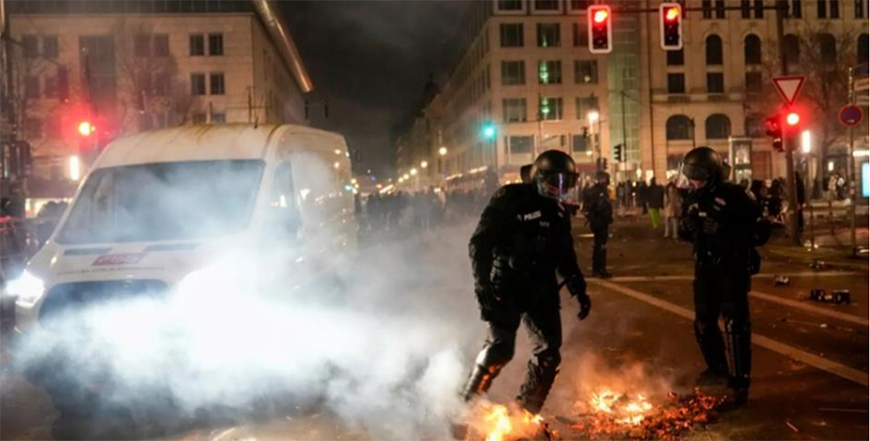BERLIN — Almost 1.5 million Germans backed a police union push Monday to ban fireworks on New Year's Eve after the latest celebrations were again marred by deaths, injuries and arrests.
Critics have long sought to end Germany's raucous use of pyrotechnics to ring in the New Year, citing safety concerns but also air pollution and the traumatic effects on domestic pets.
This year, five people died across Germany in accidents linked to legal and illegal fireworks, including powerful home-made devices, with many more people sustaining injuries.
More than 100 police officers were reported injured nationwide, including about 30 in the capital Berlin, which is known for its especially intense use of rockets and firecrackers, sometimes aimed at law enforcement personnel.
"This massive violence against our colleagues must stop," the national police union GdP's Berlin chapter said in a petition handed over to the interior ministry on Monday.
The petition, which had gathered over 1.4 million signatures, called for a ban "so that we don't have to talk about dozens of injuries again next year".
It added that "for years, the debate about banning fireworks has arisen a few days before New Year's Eve and... for the rest of the year, hardly anyone talks about it.
"We can't let that happen this year."
About 400 people were detained in Berlin alone on New Year's Eve for offences related to fireworks.
In Berlin's Schoeneberg district, the explosion of a pyrotechnic device damaged about 40 apartments, panicking residents and leaving the flats temporarily uninhabitable.
And a visiting Palestinian social media influencer was arrested at the airport on Saturday after a video circulating online allegedly showed him shooting a firework through a Berlin apartment window.
Alice Weidel, co-leader of Germany's far-right Alternative for Germany (AfD) party, had reposted the video on social media platform X, denouncing "migrant violence" in Germany.
Interior Minister Nancy Faeser had last week called for tougher penalties for people who misuse fireworks.
"Hooligans and violent criminals who attack emergency services and endanger people's health with highly dangerous explosives will only respond to a tough line," she told the Bild daily, calling for up to five years' jail for offenders.
However, the government for now appears in no mood to completely outlaw Germany's love affair with fireworks.
A spokesman for Faeser on Monday said the problems were limited to big cities and that there was "no majority in favour of a general ban" in the German parliament.
Chancellor Olaf Scholz, who faces elections on February 23, in an interview with Stern magazine also said that he found the idea of a nationwide fireworks ban "somewhat strange".
